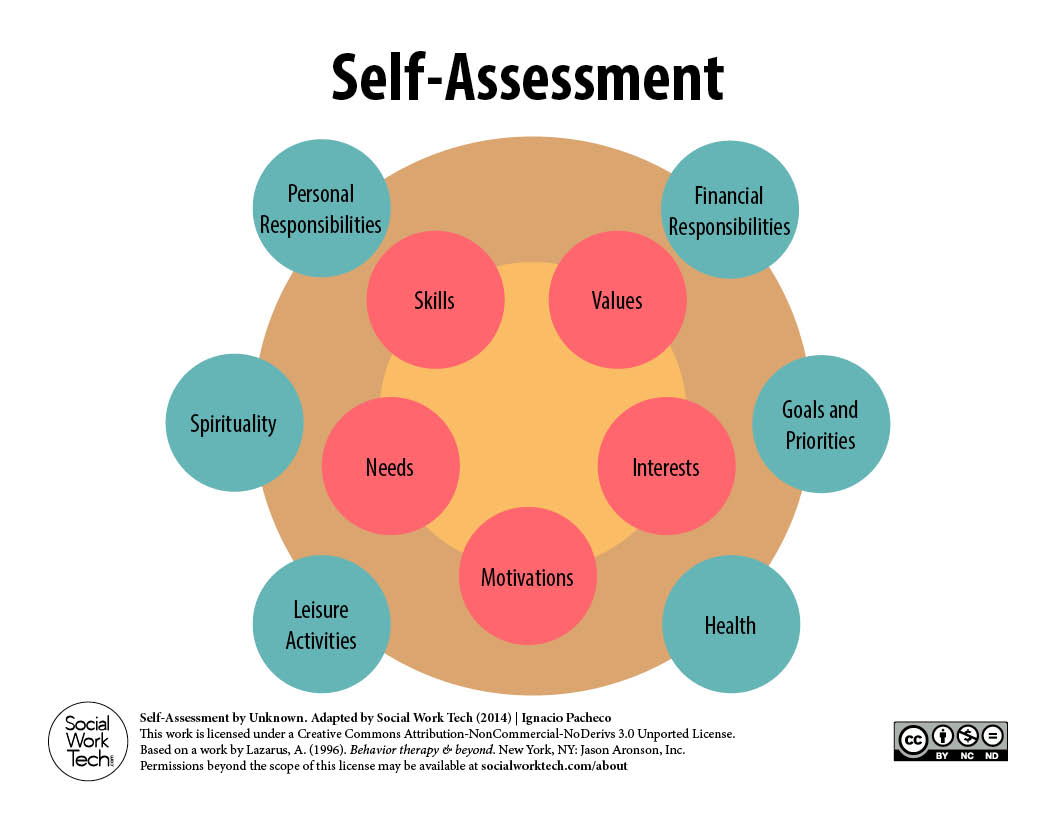
Assessment is one of the major elements of social work practice. For instance, an assessment can be used in a meeting by the committee to assess the effectiveness of the services delivered by the agency. The assessments at the micro and mezzo levels is useful, especially for social workers in mental health or therapy settings. Assessments at these levels allow for the social worker to learn about the client’s background and health status. Social workers using assessments also involves gathering data and applying knowledge of human behavior which can help to advance the effectiveness of the services.
7A -Formulate comprehensive assessments, using a variety of diagnostic classification systems.
Course Evidence: For my Mental Health emphasis class, I was required to utilize conceptual frameworks to guide the processes of assessment, intervention, and evaluation. This was done while writing summaries on each of the summaries for each of the chapters that I was assigned to read for the class. The summaries that I wrote covered concepts such as client evaluation, mental health assessments, and the role of the social worker in a medical or mental health setting and how it’s different from the roles of doctors, psychiatrists, and nurses.
Values: The values that are being implemented for this competency are service and dignity and worth of the person. The way that these values are being implemented involve being interested in the well-being of the patient.
Knowledge: The knowledge that I implemented for this competency was from my Mental Health foundation class concerning the subject of the role of the social worker in mental health and hospital agencies and how their role affects clients with different mental illnesses and disorders.
Cognitive Process: For this competency I had to analyze and evaluate the specific concepts surrounding mental health and create methods of how I would utilize the skills in my future career as a social worker.
Field Evidence: At my field placement, I spend time reading the case notes for every participant that usually comes to the agency. In their notes, I assessed their family background, education, and their medical history. This type of activity allows for me to learn more about the participants who attend Signal Centers so that I can learn the different strategies for engaging those who have developmental disabilities Down syndrome, aphasia, schizophrenia, and cerebral palsy.
Affective Process: For this competency, I was required to align together the different concepts of case management, assessments, and evaluation and how these concepts affect clients suffering from different mental illnesses, disorders, and developmental disabilities.
7B – Design and implement organizational and/or community assessments
Course Evidence: For Advanced Administration II, my colleagues and I worked on a project that involved a mental health program for adolescent students living in Hamilton County, Tennessee. As a part of this project, we created budgets, analysis, and completed research on different policies to create a substance abuse program for adolescents who are struggling with addictions to drugs and alcohol. This type of program will allow for them to be able to overcome their addiction, finish high school successfully, and have the ability to navigate their way through adulthood.
Advanced Administration II paper
Skills: The skills that were implemented for this competency was case management, research, client assessments, and supervision.
Field Evidence: For my special project, I discussed two different theories that could be used to assess the strengths and needs of Signal Centers. These two theories are Social Learning theory and Bronfenbrenner’s Ecological Systems Theory. Social learning theory is known as behaviorism and Brofenbrenner’s Ecological System Theory explains that people are settled within different layers of society starting from their families to society at large.
Theoretical foundation: The theoretical foundation that was implemented for this specific competency was the Dilution Effect theory. The basis of this specific theory explains how stereotypes are harmful and can affect different people. However, having the right information is crucial in terms of fighting specific biases. The way that this theory applies to this competency is that as someone who plans to become a social worker in the field of mental health and healthcare, many people who have different developmental disabilities, mental illnesses, and disorders are affected by negative stereotypes due to the media and that is crucial for mental health professionals including social workers to research and educate themselves about these specific populations. This also involves understanding how specific policies may be harmful to these populations as well.